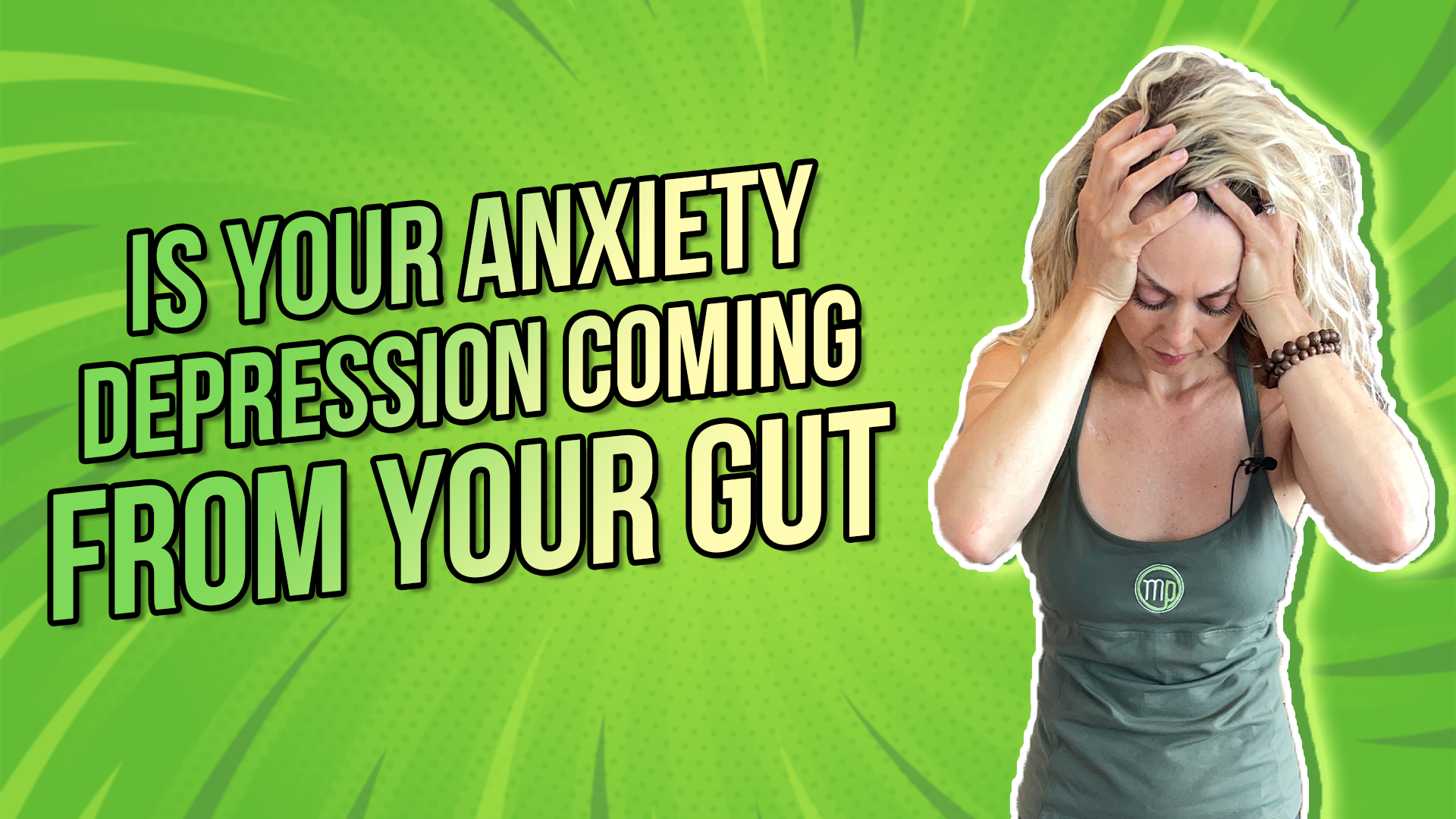Is your anxiety and/or depression coming from your gut? So many people are suffering from anxiety and/or depression, so it’s important to look at the connections between the gut and the brain, and the gut’s influence on mood and behavior. This is an important aspect of looking at mental health and addressing some underlying physical causes.
The gut-brain connection is fascinating, and it is essentially our bidirectional communication between our gut and brain. It has multiple pathways, including the hormonal, immune system, and nervous systems. For the purpose of today, let’s focus on two aspects: the hormonal and nervous systems.
Rather watch or listen than read?
The hormonal connection is based on neurotransmitters which are essentially chemical messengers; we also refer to them as hormones. They are signaling from the gut to the brain and the brain to the gut. We have 90% of our serotonin, which is our hormone that provides feelings of happiness, located in our gut. 50% is the dopamine in our gut, which is our feel-good hormone. We also have GABA, gamma amino butyric acid, which decreases feelings of stress and anxiety. All of these are located in our gut! Therefore, gut issues, infections, inflammatory diets can influence our mood and behavior.
Our gut bacteria form these neurotransmitters, so different strains of bacteria will influence these different neurotransmitters. For example, Streptococcus and Enterococcus produce serotonin. Escherichia produces norepinephrine, dopamine, and serotonin. Bacillus species also produce norepinephrine and dopamine. Bifidobacterium produces GABA. Lactobacillus species influence our acetylcholine, which is important for relaxation response, and GABA.
The nervous system pathways of the gut-brain connection, on the other hand, primarily exist through the vagus nerve. The vagus nerve originates from the brainstem; it’s the 10th cranial nerve, and it’s actually a pair of nerves. It innervates muscles of the face, throat, heart, respiration, digestion, and our entire elimination track. It is one of the most important nerves of our digestive system. Therefore, we are influencing this gut-to-brain connection when we are either stimulating the gut from a viscera and/or probiotics or vagus nerve stimulation exercises such as breathing.
It is imperative that we begin to look more closely at these powerful connections and that we look beyond the genetic and environmental components to see why someone may be experiencing anxiety and depression or other mental health issues. Things such as leaky gut, SIBO (small intestinal bacterial overgrowth), systemic inflammation, inflammatory foods, and the standard American diet will undoubtedly influence these neurotransmitters and the vagus nerve. This attributes to changes in our serotonin, dopamine, and GABA levels, thereby impacting our mood and behavior.
What can you do about it? Find a functional medicine provider to help you navigate the physical causes of anxiety and depression. You could also start with testing: leaky gut, SIBO, stool testing to look at your microbiome.
You can also start by making small changes. Focus on eating an anti-inflammatory diet, optimizing your sleep, and working on stress reduction connections.
Reach out for a 15-minute FREE discovery session to see how we can help you on your journey.
For more content, make sure to subscribe to our YouTube channel here.
Other things that may interest you:
WHY DO YOU HAVE CRAVINGS | 4 reasons

